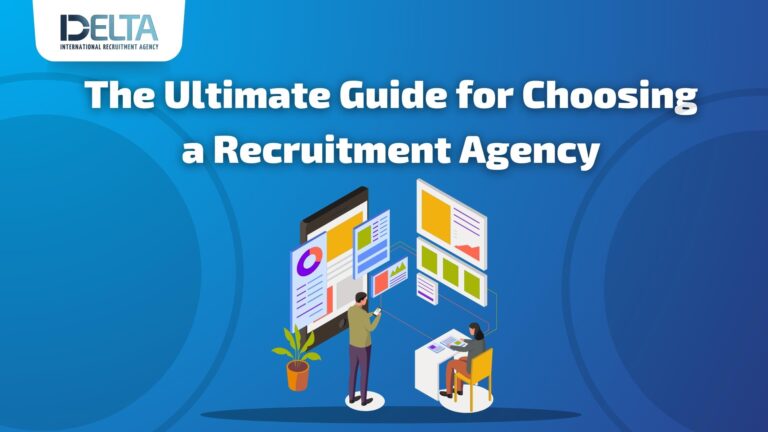In the ever-evolving landscape of talent acquisition, businesses are increasingly turning to recruitment agencies as strategic partners in their quest for the right talent. Navigating the complexities of the hiring process can be a daunting task, and this is where recruitment agencies shine, offering expertise, efficiency, and access to a vast pool of qualified candidates. In this comprehensive guide, we delve deep into the realm of recruitment agencies, exploring their functions, benefits, and providing a step-by-step checklist to help you choose the perfect agency for your unique hiring needs.
What is a Recruitment Agency?
At its core, a recruitment agency serves as a vital intermediary, linking employers with potential employees. These agencies operate as talent scouts, leveraging their industry knowledge and networks to identify, evaluate, and connect top-tier candidates with job opportunities. By understanding the intricate demands of various industries, recruitment agencies streamline the hiring process, offering a valuable service to both employers and job seekers.
Why Should You Use a Recruitment Agency?
The decision to engage a recruitment agency is driven by the desire for a more streamlined and effective hiring process. Let’s explore 5 compelling reasons why partnering with a recruitment agency is not just a choice but a strategic move for businesses:
1. Expertise and Specialization
Recruitment agencies bring a wealth of industry-specific knowledge to the table. Their expertise allows them to understand the nuanced requirements of different sectors, enabling them to identify candidates with the precise skills and experience needed for specific roles.
2. Time and Resource Efficiency
The hiring process is notorious for its time-consuming nature. Recruitment agencies alleviate this burden by taking on tasks such as resume screening, candidate interviews, and reference checks. This not only saves time but also allows businesses to allocate their resources more efficiently.
3. Access to a Wider Talent Pool
One of the significant advantages of recruitment agencies is their expansive network and candidate databases. This provides employers with access to a diverse pool of candidates, not confined by geographical limitations. The result is a broader, more varied talent pool to choose from.
4. Quality Candidates
Recruitment agencies employ rigorous screening processes to ensure that only the most qualified and suitable candidates are presented to employers. This commitment to quality reduces the risk of mismatches and increases the likelihood of successful hires.
5. Confidentiality
In cases where confidentiality is paramount, such as executive searches, recruitment agencies offer a layer of discretion. They can conduct searches without revealing the identity of the hiring company until a suitable candidate is identified, ensuring privacy for both parties.
How Does a Manpower Recruitment Agency Work?
A manpower recruitment agency operates as a proactive partner in the hiring process. The steps involved include:
- Job Requirement Analysis: Understanding the client’s hiring needs, including specific job roles, qualifications, and necessary skills.
- Candidate Sourcing: Utilizing diverse channels, such as job boards, social media, and industry networks, to attract potential candidates.
- Screening and Assessment: Conducting thorough evaluations of candidate resumes, interviews, and assessments to ensure alignment with job requirements.
- Client Presentation: Presenting a shortlist of candidates to the client for review and feedback.
- Placement: Facilitating the hiring process, including negotiation of terms and conditions, to ensure a successful placement.
What is the Average Recruitment Agency Fee?
Understanding the financial aspect of engaging a recruitment agency is crucial. While fees vary based on factors such as the level of position, industry, and search complexity, the average fee typically falls within the range of 15% to 30% of the candidate’s first-year salary. This fee structure necessitates a clear understanding between the hiring company and the agency, ensuring transparency and mutual benefit.
Specialized Recruitment Services
Types of Recruitment Agencies
Recruitment agencies come in various types, each catering to specific hiring needs. Here are three common types:
Type 1: General Recruiting Agencies
Versatile and adaptable, general recruiting agencies handle a broad range of job positions across different industries. They are suitable for businesses with diverse and changing hiring needs.
Type 2: Staffing Recruitment Agency
Staffing agencies focus on providing temporary or contract staff to meet short-term employment needs. They are ideal for businesses with fluctuating staffing requirements or those looking for temporary solutions.
Type 3: Executive Recruitment Agency
Specializing in executive searches agencies, these agencies focus on filling senior-level and executive positions. They conduct targeted searches to identify high-caliber candidates for leadership roles.
Choosing a Recruitment Agency: 4 Steps Checklist
Now, let’s explore a detailed, four-step checklist to guide you in selecting the right recruitment agency for your specific needs:
Step #1: Define Your Hiring Needs
Before venturing into the recruitment agency selection process, take the time to clearly define your hiring needs. Identify the roles you need to fill, the specific skills required, and any unique qualifications essential for success in those roles. This foundational step ensures that the agency you choose aligns seamlessly with your recruitment goals.
Step #2: Choose the Right Recruitment Agency Type
With a clear understanding of your hiring needs, select a recruitment agency type that best matches those requirements. General recruiting agencies offer versatility for a wide range of positions, while staffing agencies and executive recruiters cater to more specialized roles.
Step #3: Check Affordability
Review the fee structures of potential recruitment agencies. Consider your budget and negotiate terms that are not only reasonable but also transparent. It’s essential to understand the value offered by the agency in relation to their fees, ensuring a fair and mutually beneficial arrangement.
Step #4: Check the Expertise
Assess the expertise of the recruitment agency in your industry or sector. A track record of successful placements in roles similar to yours is a strong indicator of their ability to source the right candidates. Industry-specific knowledge enhances their capacity to understand the intricacies of your hiring needs.
Additional Tips for Choosing the Best Recruitment Agency
As you navigate the selection process, consider these additional tips to make an informed decision:
- Ask for References: Request references from previous clients to gain insights into the agency’s reputation and success rate.
- Evaluate Communication: Choose an agency that prioritizes clear and transparent communication throughout the hiring process. Effective communication is crucial for a successful partnership.
- Technology and Tools: Inquire about the recruitment tools and technology used by the agency. Ensuring they leverage the latest tools contributes to efficiency and accuracy in the hiring process.
- Agree on a Timeline: Set clear expectations for the recruitment timeline. This ensures timely hires and a well-managed process.
- Continuous Feedback: Establish a feedback loop with the agency. Regular check-ins allow for adjustments and ensure that the partnership remains aligned with your evolving needs.
In conclusion, choosing the Right Recruitment Agency is a strategic decision that significantly impacts your organization’s success. By following the outlined steps and considering the additional tips, you can embark on a partnership that not only meets your hiring needs but also contributes to the long-term growth and success of your business.











.webp)
















